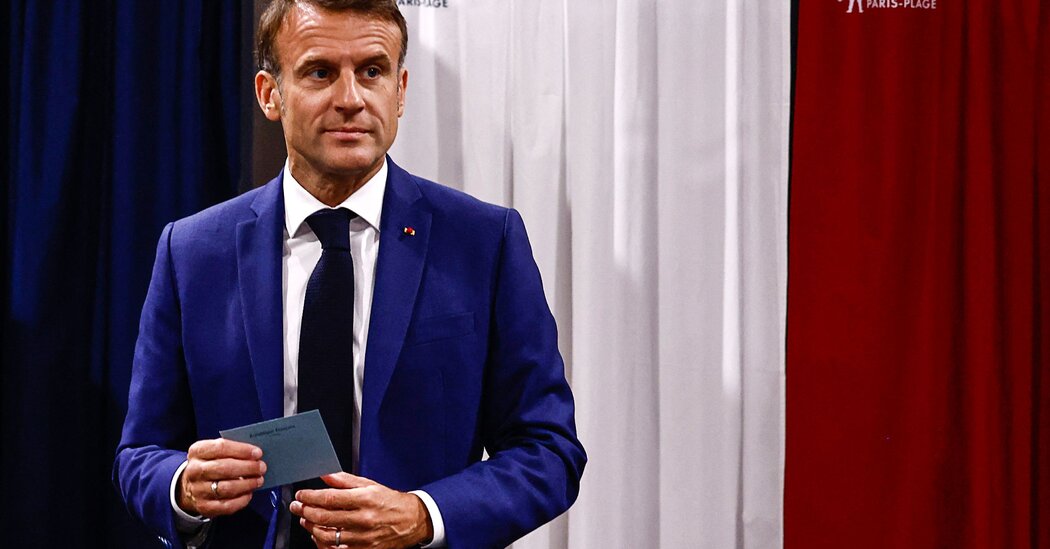Breaking News
What to Watch For in France’s High-Stakes Elections

France is gearing up for the first round of snap legislative elections on Sunday, called by President Emmanuel Macron, plunging the country into uncertainty over its future.
Voters will select their 577 representatives in the National Assembly, which will shape Mr. Macron’s second term in office.
The outcome of the elections could lead to a new majority opposed to Mr. Macron, potentially reshaping domestic and foreign policies. A lack of clear majority may result in political turmoil or deadlock. Mr. Macron cannot call for new elections for another year.
The National Rally party is expected to lead the race, followed by a left-wing alliance. Mr. Macron’s centrist party is projected to lose seats.
Polls will close at 6 p.m. local time on Sunday, with nationwide voting projections expected shortly after 8 p.m. Official results will be released throughout the night.
The elections occur in two rounds, with high participation anticipated. Each of France’s 577 electoral districts will award a seat to the candidate with the most votes.
The second round will take place on July 7, featuring the top two vote-getters from the first round. Some districts may have three or four candidates in the runoff.
A candidate must receive over 50 percent of the vote in the first round to win outright, with specific thresholds to advance to the second round.
Rare scenarios like a candidate winning over 50 percent in the first round or runoffs with multiple candidates are more likely with low voter abstention, expected this election.
Historically, legislative elections in France favor the party that won the presidency, but the current election presents higher stakes.
A surge in far-right support, a strong left-wing alliance, and a diminishing center are noticeable in the current political landscape.
If the National Assembly shifts to Mr. Macron’s opposition, he would need to appoint a prime minister from a different party, impacting domestic policy. The National Rally party leads in polls, aiming to govern France for the first time.
The left-wing alliance is vying for power to reverse some of Mr. Macron’s policies. The centrist party faces an uphill battle in the election.
First-round results may not accurately predict the final outcome, as seen in previous elections.
Each party’s performance in the election depends on the number of runoffs their candidates reach. The period between the two rounds is crucial for campaigning and strategic voting.
With each district being a separate race, the final outcome will only be clear after the second round of voting.
The elections will determine the direction of France’s future, with potential shifts in policies and leadership depending on the outcome.
Stay tuned for updates as the results unfold.
-

 Destination8 months ago
Destination8 months agoSingapore Airlines CEO set to join board of Air India, BA News, BA
-

 Breaking News9 months ago
Breaking News9 months agoCroatia to reintroduce compulsory military draft as regional tensions soar
-

 Tech News12 months ago
Tech News12 months agoBangladeshi police agents accused of selling citizens’ personal information on Telegram
-

 Gadgets3 months ago
Gadgets3 months agoSupernatural Season 16 Revival News, Cast, Plot and Release Date
-

 Productivity11 months ago
Productivity11 months agoHow Your Contact Center Can Become A Customer Engagement Center
-

 Breaking News9 months ago
Breaking News9 months agoBangladesh crisis: Refaat Ahmed sworn in as Bangladesh’s new chief justice
-

 Gadgets1 week ago
Gadgets1 week agoFallout Season 2 Potential Release Date, Cast, Plot and News
-

 Toys11 months ago
Toys11 months ago15 of the Best Trike & Tricycles Mums Recommend























